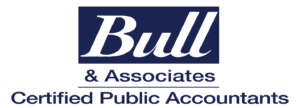The IRS recently released two documents related to PPP loan forgiveness.
Revenue Ruling 2020-27: This addresses the deductibility of covered expenses when the loan is expected to be forgiven.
- Situation 1-During the covered period, XYZ paid eligible expenses including interest on a mortgage, utilities, and rent. In November 2020, XYZ applied to its lender for the forgiveness of its covered loan based on the eligible expenses it paid during the covered period. At that time, and based on XYZ’s payment of eligible expenses, XYZ satisfied all requirements for the forgiveness of the covered loan. The lender did not inform whether the loan will be forgiven before the end of 2020.
- Situation 2 -During the covered period, ABC paid the same types of eligible expenses that XYZ paid in Situation 1. ABC, unlike XYZ, did not apply for forgiveness of the covered loan before the end of 2020. Based on ABC’s payment of the eligible expenses during the covered period, ABC satisfied all other requirements for the forgiveness of the covered loan. ABC expects to apply to the lender for the forgiveness of the covered loan in 2021.
The covered expenses are not deductible in either situation. In Situation 2, loan forgiveness is reasonably expected to occur. Therefore, the covered expenses will not be deductible in 2020, the year the expenses were incurred.
Revenue Procedure 2020-51: This provides two safe harbors to claim deductions for eligible 2020 expenses for which no deduction would otherwise be allowed because at the end of the 2020 tax year, the taxpayer reasonably expects to receive forgiveness of the covered loan based on those eligible expenses (non-deducted eligible expenses}.
Safe harbor for deductions to be claimed in the 2020 tax year-An eligible taxpayer who satisfies the safe harbor requirements may deduct non-deducted eligible expenses on the taxpayer’s timely filed (including extensions} original 2020 tax return.
Safe harbor for deductions to be claimed in a subsequent tax year -An eligible taxpayer who satisfies th·e safe harbor requirements may deduct non-deducted eligible expenses on the taxpayer’s timely filed (including extensions) original tax return for a subsequent year. Eligible taxpayers may use this safe harbor to deduct non-deducted eligible expenses in a subsequent year because those taxpayers may deduct the non-deducted eligible expenses in the year that the loan forgiveness is denied under general tax principals, assuming the taxpayer does not elect to use the safe harbor above.
Safe harbor requirements-A taxpayer applying one of the safe harbor procedures may not deduct an amount of non-deducted eligible expenses in excess of the principal amount of the covered loan for which forgiveness was denied or will no longer be sought.
Eligible taxpayer-A taxpayer is eligible to apply either of the safe harbors if the taxpayer meets either of the following two requirements.
A taxpayer meets the first requirement if:
- The taxpayer paid or incurred eligible expenses in the 2020 tax year for which no deduction is permitted because, at the end of the 2020 tax year, the taxpayer reasonably expects to receive forgiveness of the covered loan based on those eligible expenses;
- The taxpayer submitted before the end of the 2020 tax year, or as of the end of the 2020 tax year intends to submit in a subsequent tax year an application for covered loan forgiveness to the lender; and
- In a subsequent tax year, the lender notifies the taxpayer that forgiveness of all or part of the covered loan is denied.
A taxpayer meets the second requirement if:
- The taxpayer meets the requirements of 1 and 2 above; and
- In a subsequent tax year, the taxpayer irrevocably decides not to seek forgiveness for some or all of the covered loan.
Further explanation can be read in these downloadable documents:
REV RULE 2020-27 and REV PROC 2020-51
As always, call us with any questions!
